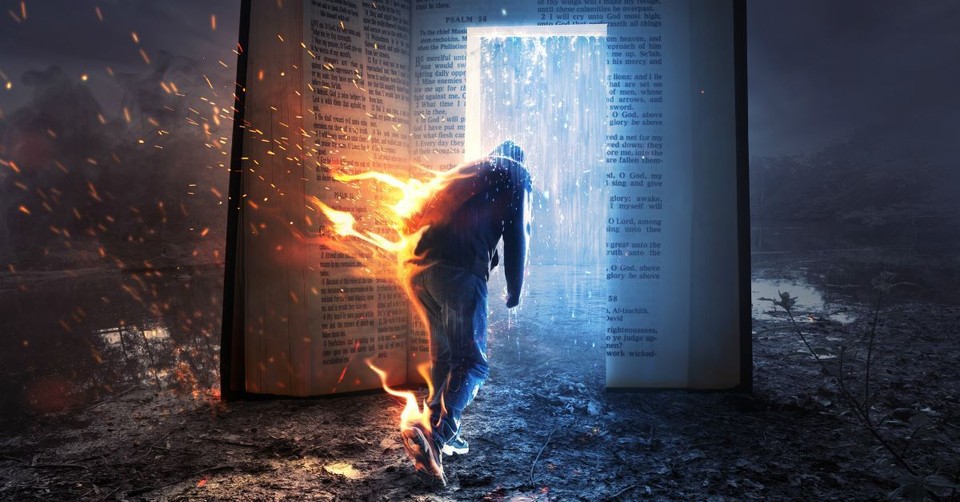What Should Pastors Preach about Hell?

Sermons on hell are likely not on the top ten list of topics desired by a church congregation. However, the sermons are necessary.
First, they convict the sinner as to his or her destination in his or her current spiritual condition. Second, sermons on hell allow the saved to realize what exactly they are shunning by their faith in Jesus Christ.
David comprehended this great blessing as he wrote in Psalm 86:13, “for great is your steadfast love toward me, you have delivered my soul from the depths of [hell].” Because hell is a biblical concept worthy of discussion, here are 5 things pastors should include in their sermons on this topic:
1. Hell is Real
As we are often reminded, Jesus speaks more about Hell than of Heaven. We should take this treatment as notice that we are to always be mindful of the torment awaiting a person who has not accepted Jesus Christ as Savior and Lord.
In the story of the rich man and Lazarus found in Luke 16:19-31, we are told that the rich man found himself in torment in Hell. He looked up and saw Abraham and Lazarus far off and called out for help and mercy. Specifically, he beckoned for “Lazarus to dip the end of his finger in water and cool my tongue, for I am in anguish in this flame.” If just one drop of water would aid the torment in such a place, the degree of suffering is both real and immeasurable.
Additionally, there will be no pause to the lamentation in hell. The fact that one drop of water will not be permitted to the sufferer reflects, there will be no sleep, no peace, and no quietness.
2. Hell is Expanding
The dimensions of heavens are specified with clarity in the Bible. Hell, on the other hand, is not defined in terms of boundaries or depth. We are told in Isaiah 5:14 that Hell “has enlarged its appetite and opened its mouth beyond measure.”
Notice that its mouth is beyond measure and its appetite is never satisfied. Thus, the entrance to hell is so expandable that it is capable of handling great entrances. Further, the “enlarged appetite” warns us there will never be a flashing “no vacancy” sign at its entrance.
In Matthew 8:12 hell is referred to in terms of “the outer darkness.” In the most simplistic terms, “darkness” is the absence of light. Darkness is incapable of being measured or defined.
Because of the increasing population of Hell, it’s barriers and gates are unable to be defined.
3. Hell Is a Reality For the Lost
Our world is full of fears: fear of failure, natural disaster, war, and disease. Matthew 10:28 tells the unsaved “do not fear those who kill the body, but cannot kill the soul,” but “fear him who can destroy both soul and body in hell.”
John the Revelator at declares in John 20:15, “if anyone’s name was not found written in the book of life, he was thrown into the lake of fire.” Further, in the story of the rich man and Lazarus, the rich man was fully cognizant of the reality of hell. He begged Abraham to send Lazarus “to my father’s house for I have five brothers so that he may warn them, lest they also come into this place of torment.”
The reality of the eternal damnation set in for the rich man. He realized that his unbelief cemented this destiny. He was so dismayed by his condition that he was determined his brothers had the same destination unless someone intervened in their lives.
Hell was not created for us, but the sins of the world destined those who die without the salvation through Jesus Christ to this place of torment. The “eternal fire” was “prepared for the devil and his angels.” (Matthew 25:41)
4. Hell Is Eternal
The existence of hell and its accompanying torment is never-ending. In Revelation 14:11, John told “the smoke of their torment goes up forever and ever, and they have no rest, day or night, these worshipers of the beast and its image, and whoever receives the mark of its name.”
The lost that will spend eternity in torment will have all of their senses and faculties. The pain and misery will be so severe “there will be weeping and gnashing of teeth.” (Matthew 13:50)
Not only will the pain be physical, but also mental. In 2 Thessalonians 1:9, we are told, “they will suffer the punishment of eternal destruction, away from the presence of the Lord and from the glory of his might.” The physical body will burn without being consumed, but the greatest portion of the misery will be due to the absence of God. As Charles Spurgeon preached, “there is no communion with God in hell.”
He went further and proclaimed, “there are prayers, but they are unheard. There are tears, but they are unaccepted. There are cries for pity, but they are all an abomination unto the Lord.”
Abraham spoke of another separation of the inhabitants of Hell. In Luke 16:26, Abraham described “a great chasm has been fixed, in order that those who would pass from here to you may not be able, and none may cross from there to us.” There is a great border separating Hell from Heaven and Earth. No one is able to travel from hell to heaven or from heaven to hell.
The misery of Hell is eternal for the lost as are the blessings and bliss of Heaven for the believer.
5. Our Current Trials Aren’t Hell
Hell is a subject often spoken about in terms of our misery experienced here on earth. When we compare something in our life to “hell,” our audience knows exactly our feeling on the subject.
However, the believer knows better than to minimize anything we may experience in life in relating it to “hell.” The trials and tribulations in our life will in no way compare to the torment and suffering as those who will dwell in Hell for eternity.
In Matthew 7:13, we are told, “the gate is wide and the way is easy that leads to destruction, and those who enter by it are many.” The preaching of Hell may not be desired, but it is crucial to a lost and dying world.
We have a heaven to gain and a hell to shun by placing our faith in Jesus Christ.

Photo Credit: ©GettyImages/kevron2001
Originally published October 07, 2019.







